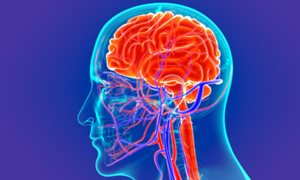
Body temperature can be determined from heart rate. This is what research by the Radboudumc among Olympic athletes shows. Athletes can use this method during training to eventually perform better in the heat. The technique is now being further investigated among participants in the 4Daagse.
Algorithm of the US Army
Exercise increases body temperature, especially with hot weather. Excessive body temperature results in poorer performance. In extreme cases, it can even lead to dangerous heat stroke. Yannick de Korte from the Department of Physiology investigated with colleagues whether body temperature can be reliably calculated from heart rate. He did this with 101 athletes who were training for the Tokyo Olympic Games as part of the Thermo Tokyo project. De Korte: "Professional athletes almost always have a belt around their waist that continuously measures their heart rate. Using computer calculations, a so-called algorithm, you can estimate the body temperature from the heart rate signal. We compared this to direct temperature measurements by a special temperature pill the athletes took.' The U.S. Army developed the algorithm, which is also used by the Dutch Army. The researchers therefore collaborated with the Ministry of Defence on this research.
Positively surprised
The first results surprised de Korte: 'They looked very good. The algorithm performed well at slightly to moderately elevated body temperatures. We had not expected that you could reliably determine body temperature during exercise using only a heart rate signal. After all, there is a lot of variation in temperature responses between individuals.' However, the research also shows that the algorithm becomes unreliable at a body temperature above 39 degrees. This means that this method is not yet suitable for warning of overheating. But it can be used during training sessions to get the body used to higher body temperatures. For example, one hour of training with a moderately increased body temperature already causes changes in the body," says de Korte. 'This allows you to exercise better in the heat. The athlete sees the temperature on a watch that is connected to the heart rate belt. In this way, he or she can immediately adjust the intensity of the training based on the temperature.
Further research with Four Days Marches runners
The method is being further investigated among twenty participants in the Nijmegen 4Daagse. De Korte explains: 'The current research was conducted in a very controlled environment with young elite athletes with a high training intensity. We will now investigate it in a very diverse group of runners of different ages and during prolonged and moderately intense exercise.' The participants swallow the temperature pill and wear a heart rate belt and the watch that displays the estimated temperature.
'We are also very curious to know whether runners are interested in real-time information about their body temperature and whether they adjust their behavior accordingly,' says de Korte. For example, will they run less or drink more if their body temperature rises? We are going to investigate this with questionnaires. We would have conducted the study on the Tuesday of the Four Days Marches, but that day was cancelled due to the extreme heat. Now we will do the measurements on Wednesday. The current circumstances make this research enormously relevant. We hope the results will give us tools for the future.'

About the publication
This research is published in Frontiers in Sports and Active Living: A Heart Rate Based Algorithm to Estimate Core Temperature Responses in Elite Athletes Exercising in the Heat. J.Q. de Korte, B.J. Veenstra, M. van Rijswick, E.J.K. Derksen, M.T.E. Hopman, C.C.W.G Bongers, T.M.H. Eijsvogels. DOI: 10.3389/fspor.2022.882254.
-
Want to know more about these subjects? Click on the buttons below for more news.
More information
Pauline Dekhuijzen

wetenschaps- en persvoorlichter
Related news items

Grants for heart and kidney research Two awards to Radboudumc in Open Competition ENW-XS
21 July 2022Two researchers from the Radboudumc receive a grant from the NWO within the Open Competition of the Exact and Natural Sciences. They are Thijs Eijsvogels, who studies the heart, and Pieter Leermakers, who studies the kidneys.
go to page
Want to be sustainable and cool? Choose fans more and aircon less Keep cool and help the environment
12 April 2022 A recent published study led by the University of Sydney, has found using indoor fans more often allows people to reduce their air conditioner use without changing how hot they feel, paving a way for reducing future energy use and greenhouse gas emissions. Coen Bongers, is one of the co-authors. go to page
Exercise program appears to be a good alternative to surgery for chronic chest pain Reduced risk of other conditions, hospitalizations, and mortality
9 December 2021 Patients with chronic chest pain may benefit more from following an exercise program than from surgery in which doctors place a stent. Data from over 18,000 patients show a reduced risk of mortality, hospitalizations and other conditions. go to page
How much should we exercise to live healthier lives? Research into the relationship between exercise, heart disease and mortality
3 December 2021 It has long been known that exercise reduces the risk of many chronic diseases. However, we do not yet know exactly how much exercise is necessary to achieve health benefits. go to page

